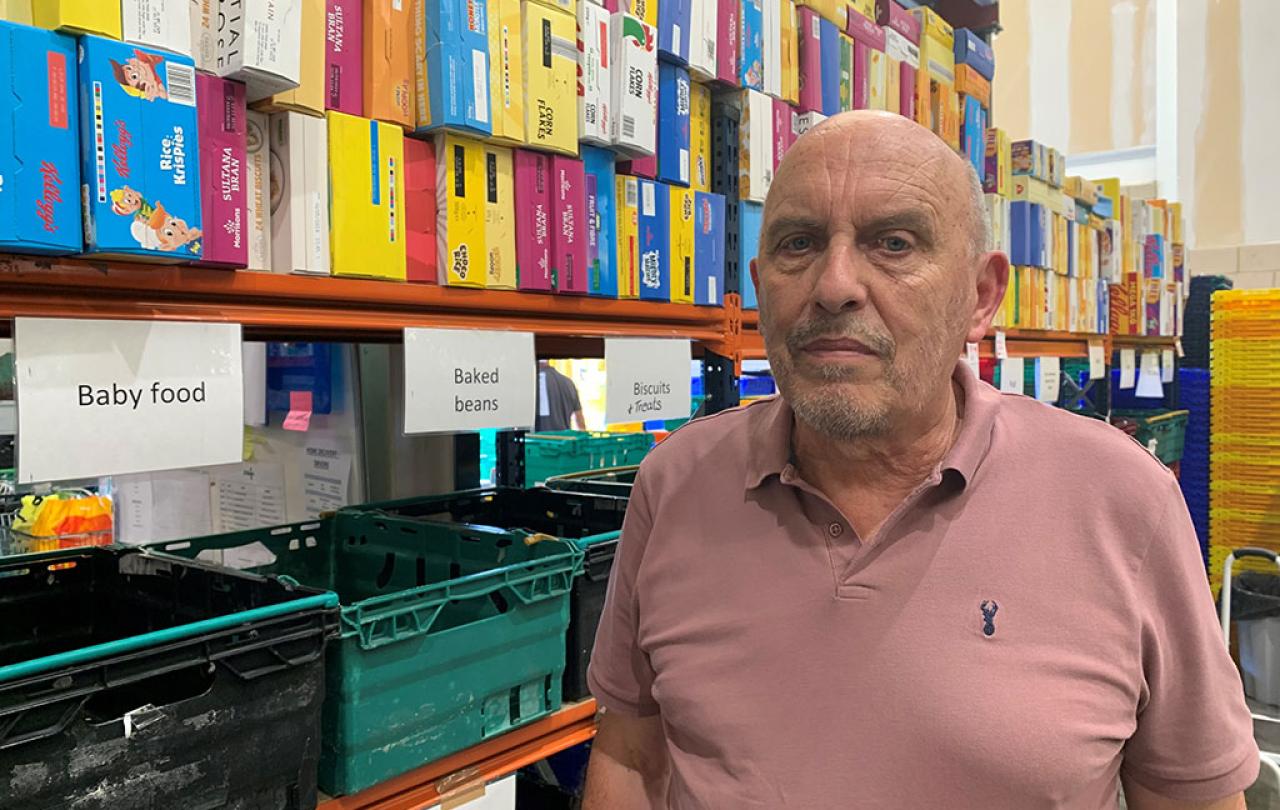In Eastbourne, the strategy of reducing dependence on food banks has been in place from the start, according to Wardle.
“When we started, we felt it was one thing to have a food bank giving out food but another to have people not need to come to food banks,” he says.
After receiving some grant funding, the food bank took on staff to help clients to resolve their financial problems and ensure they were receiving all the welfare benefits to which they were entitled.
“We built a welfare benefits team, a debt team and a medical benefits team so that we could help clients,” Wardle says.
Robert Crockford, the food bank’s senior advocacy officer, says he helps food bank clients to navigate issues such as the two-child limit and the overall benefits cap that restrict the amount benefits recipients can receive.
The two-child limit stops parents from receiving child benefit for any more than two children if the additional children were born after 2017. The benefit cap - £283.71 for a single person living outside Greater London – was introduced in 2013. It limits the total amount a person or family can receive from the system.
Crockford explains that he seeks to help clients to explore whether they count as disabled, a carer or have some other status that might enable them to receive higher benefits.
The group also works with People Matter, a charity that helps to prepare people for work.
“We’re not just here to get people on benefits,” Crockford says. “If we think they can work, we try to encourage people to get into work.”
Revie bemoans the overall inadequacy of the benefits system, pointing out that many recipients of Universal Credit – the main income-support benefit for most people who are unemployed or on low incomes in the UK – cannot afford food.
“When almost half the people on that benefit are unable to afford food, something systematically is failing,” she says. “So do you tackle the symptoms or do you tackle the actual problem?”
That emphasis on tackling problems is clear at another food bank affiliated with the trust – in Kingston, on the south-western edge of London.
Ian Jacobs, director of Kingston Foodbank, says his organisation works closely with Citizens’ Advice to try to develop permanent solutions for people seeking help.
“We do deep-dive investigations into people’s circumstances to try to see if we can get more money into people’s pockets,” he says.
Kingston Foodbank currently operates six foodbank centres and one pantry, where referred clients can select and buy reduced-price food. Jacobs says he would like one day to reverse the proportion, so that it operates six pantries and one food bank.
Jacobs, a member of the Doxa Deo Community Church, an independent evangelical church, also makes it clear that many volunteers are working at the food bank out of Christian conviction.
“We’re always open to pray with clients,” he says.
Revie says the trust is “deeply rooted” in the local churches.
“Many of our volunteers and staff are motivated in the work that they do by their Christian faith,” she says. “Our values of community, compassion, dignity and justice are deeply rooted in the Christian faith.”
Revie points out that the trust was founded by Christians and that its network grew through approaches by individual churches to the trust.
"We as an organisation work with people of all faiths and none and we certainly support people of all faiths and none," she says. "But we are deeply rooted in the local churches and many of our volunteers and staff are motivated in the work that they do by their Christian faith,” she says.
Faith has a "very special role to play" in the trust's work, Revie adds.
“Our values of community, compassion, dignity and justice are deeply rooted in the Christian faith," she says.
“We don’t believe there should be food banks in today’s society,” Jacobs says. “That’s why we do all the extra work to make sure people aren’t dependent on the food bank.”





